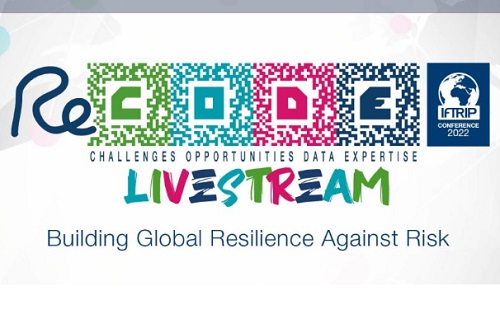Climate change, victim impact and systemic risk among key issues raised at IFTRIP conference

The International Forum of Terrorism Risk (Re)Insurance Pools (IFTRIP) has concluded a highly successful livestream conference, “ReCODE”, focusing on key issues in terrorism insurance today.
The links between climate change and terrorism were a key topic throughout the day, and a full report on approaches to the study of climate change and its links to terrorism is available on demand. The study was carried out by the National Consortium for the Study of Terrorism and Responses to Terrorism (START) and funded by Pool Re.
Kenneth R. Feinberg, former Special Master of the 9/11 Victim Compensation Fund, Department of Justice Victims of State-Sponsored Terrorism Fund and other high-profile programmes, spoke about victim impact, the Tort System and the supplementation to litigation by private charitable donations.
Ali Soufan, former FBI Supervisory Special Agent, who investigated and supervised complex international terrorism cases including the events surrounding 9/11, gave an overview of the global terrorism landscape and shifting priorities and the idea of counter terrorism “fatigue”. He also spoke about the uncertainty of the war in Ukraine, the leadership of ISIS and effect of globalization on ideologies.
Bronek Masojada, former Group CEO of Hiscox plc, discussed the “Future of the (re)insurance industry” identifying four key areas of focus: digitalization, diversity and inclusion, climate change and systemic risk.
Chris Wallace, IFTRIP president, commented on the innocent victims of the conflict of the war in Ukraine, and its global impact. Wallace also announced IFTRIP’s newly founded advisory guild, dedicated to the mitigation of the terrorism threat and strengthening relationships and collaborative efforts between terrorism pools.
Tom Clementi spoke publicly for the first time as Pool Re CEO delivering a welcome address to the attendees that covered the war in Ukraine, extremists’ use of digital networks, climate change and the protection gaps exposed by Covid-19.
The second instalment of Pool Re’s 9.11 docufilm film, ‘Two Decades of Disruption: PART II’ also premiered at the conference. The film discusses the impact 9/11 had on the (re)insurance industry, the importance of public-private partnerships in dealing with unprecedented attacks, the threats and drivers of terrorism today, and why it is so important to remember and commemorate 9/11.
Overall, the conference saw keynotes, expert panels and live Q&A sessions from a variety of well-respected experts in the field of (re)insurance, terrorism, national security, intelligence, and risk. Discussion topics included future terrorism and systemic risk, the emerging and increasing effect of climate change on terrorism, social media as a tool for extremist groups, the protection gap, pooling risk, parametric insurance and public/private partnerships.





